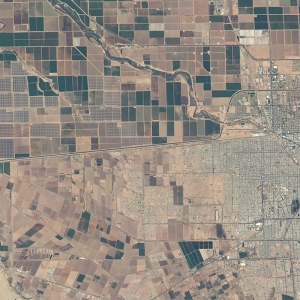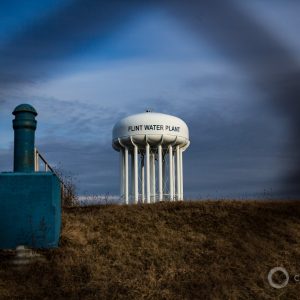Federal Water Tap, March 9: EPA Science Advisers Criticize Waters of the United States Definition
The Rundown
Outside advisers rebuke the EPA for a rule that is “inconsistent” with the Clean Water Act. Representatives introduce bills on regulating oil and gas water use on federally managed lands, a plumbing research laboratory, invasive aquatic species, Lake Ontario flooding, and a water technology research program. U.S. oil production grows 11 percent last year. And lastly, House Democrats seek information from Nestle about the company’s bottled water business.
“The Board concluded that the proposed WOTUS rule does not incorporate best available science and as such we find that a scientific basis for the proposed Rule, and its consistency with the objectives of the Clean Water Act, is lacking.” — Excerpt from the EPA Science Advisory Board’s commentary on the agency’s revised definition of the scope of the Clean Water Act.
By the Numbers
11 percent: Growth in U.S. crude oil production in 2019, down from a 17 percent growth rate the previous year. Most of the growth occurred in the Permian basin of New Mexico and Texas. (Energy Information Administration)
In context: Permian Oil Boom Uncorks Multibillion-Dollar Water Play
News Briefs
House Democrats Pump Nestle for Answers
Two Democratic members of the House Committee on Oversight and Reform asked food and beverage giant Nestle to detail its water bottling practices, the Desert Sun reports.
Specifically, Reps. Harley Rouda (D-CA) and Rashida Tlaib (D-MI) asked the company to describe where it extracts water, how much it extracts, and how much revenue it earns from bottled water.
Nestle has come under fire in California for withdrawing water from springs in a National Forest under an expired permit, and in Michigan for wanting to increase groundwater pumping.
Water Bills in Congress
- Rep. John Katko (R-NY) introduced a bipartisan bill to establish a federal water technology research program, called ARPA-H2O. Modeled after energy and defense technology research programs, the water version would be housed within the EPA. It would provide grants to aid the development of novel treatment systems and water management tools.
- Rep. Katko also introduced a bill that would allow the International Joint Commission to be sued for flooding around Lake Ontario. The IJC is the binational commission that oversees waters shared by the U.S. and Canada, including Lake Ontario. A revised management plan for the lake went into effect in 2017 and allowed water levels to fluctuate within a wider range.
- Rep. Jared Huffman (D-CA) introduced that a bill that would regulate certain water uses by the oil and gas industry on federally managed public lands. The bill would require producers with federal leases to provide replacement water to other users who are affected by industry contamination. The bill also would require producers to file a water management plan with their drilling application. The bill goes on to require baseline water testing before fracking on federally managed public lands, and disclosure of chemicals used in the fracking process.
- Rep. Matt Cartwright (D-PA) introduced a bill to establish a plumbing research laboratory within the National Institute of Standards and Technology. Research would focus on “premise plumbing,” which is the pipe network within buildings.
- Rep. Ben McAdams (D-UT) introduced a bipartisan bill to slow the spread of aquatic invasive species in the American West. The bill would authorize the Bureau of Reclamation to split the costs of watercraft inspection stations 50-50 with states. Zebra and quagga mussels, which clog water intake pipes, can hitch a ride on boats.
- Rep. Dan Kildee (D-MI) sponsored a bipartisan bill that would require the EPA to build a website with information about testing the quality of household water wells. That information is supposed to include potential contaminants, a list of laboratories that analyze water samples, and treatment options.
Studies and Reports
Science Advisers Rebuke EPA Over Water Rule
The EPA’s revised definition of the scope of the Clean Water Act, which the Trump administration finalized in January, “decreases protection for our Nation’s waters,” according to a commentary from the agency’s science advisory board.
The board members went on to say that the rule is inconsistent with the goals of the landmark water protection law and that it is not based on science. Board members argued that there is a scientific rationale — if not a legal one — for extending water pollution protections to more wetlands than are included in the administration’s rule, and to groundwater and irrigation canals.
Board members are appointed by the EPA administrator and advise the agency on the scientific basis for policymaking.
Four members of the 44-member board did not agree with the commentary. All four were appointed during the Trump administration.
On the Radar
House Hearings
- On March 11, the House Appropriations Committee will discuss the effects of PFAS exposure on members of the military. Maureen Sullivan, the deputy assistant secretary of defense, is scheduled to testify.
- On March 11, the House Transportation and Infrastructure Committee hears testimony on FEMA’s priorities.
Federal Water Tap is a weekly digest spotting trends in U.S. government water policy. To get more water news, follow Circle of Blue on Twitter and sign up for our newsletter.
Brett writes about agriculture, energy, infrastructure, and the politics and economics of water in the United States. He also writes the Federal Water Tap, Circle of Blue’s weekly digest of U.S. government water news. He is the winner of two Society of Environmental Journalists reporting awards, one of the top honors in American environmental journalism: first place for explanatory reporting for a series on septic system pollution in the United States(2016) and third place for beat reporting in a small market (2014). He received the Sierra Club’s Distinguished Service Award in 2018. Brett lives in Seattle, where he hikes the mountains and bakes pies. Contact Brett Walton






Leave a Reply
Want to join the discussion?Feel free to contribute!